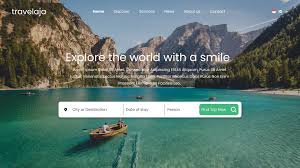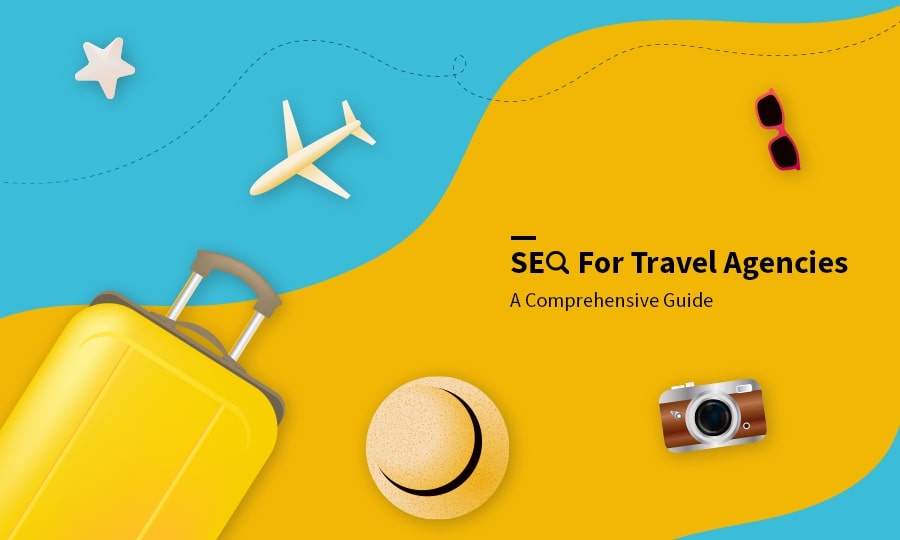
Top Factors Every Business-Based Travel Website Needs for Success
Particularly in the world of today, which is progressively digital-first, businesses are always seeking chances to guarantee the best possible client experience and enhance their operations. None is more pertinent than the travel industry, given its fierce competitiveness and rising passenger technical acumen. Therefore, for travel-related B2B businesses, a well-designed website with flawless functionality is quite crucial. The million-dollar question is what makes a B2B travel website successful. The solution resides in a set of elements that enable efficient meeting of consumer needs as well as business ones.
We shall discuss the key elements every B2B travel website needs to survive in the cutthroat travel business in this blog.
1. Navigational and User-Friendly Design
A B2B travel website must have a neat, understandable interface. Whether on desktop or mobile, its design must guarantee that guests may quickly find their way through content and complete their intended work without any uncertainty.
One absolutely vital, clean, easily readable menu is navigation. Visually, they need access to critical information such as pricing, destination, and even booking systems in very few clicks.
Fast Loading Speed: One big turnoff is slow websites. Research indicates that a one-second loading time delay could reduce consumer satisfaction and conversion rates. A fast-loading website guarantees that possible customers stay interested.
An easy-to-use website guarantees that businesses may acquire whatever information they need fast to make judgments and builds confidence.
2. Specific Search and Filtering Choices
In business travel, partners like travel agencies, tour operators, and corporate clients have to be able to quickly locate the goods and services that fit their needs. Your website must guarantee effective results by means of a strong search and filtering system.
Make sure consumers search for trip packages, hotels, flights, transportation, or other services with particular keywords or categories.
Customizing Filters: Let consumers filter results according to location, price range, kind of vacation, and accessible facilities. This speeds up the search process and allows consumers the freedom to locate precisely what they require.
Having additional search and filter choices would greatly improve the customer experience and help companies locate and reserve travel goods or services more easily.
3. System for Integrated Booking
Effective B2B travel websites generally rely on simplified booking systems as their main framework. This function guarantees that, on behalf of consumers, travel agents, corporate clients, or other companies, bookings or reservations are either from or into the platform. Easy operations and client happiness depend on a good booking system.
Your booking system has to let flights, hotels, transit, and tours be accessed in real time. If the material is not updated, users grow annoyed and could cost companies possible income.
Usually working with more than one payment method—credit cards, bank transfers, or even invoices for large bookings—businesses also deal with your booking system, which must thus allow several payment choices to suit diverse client preferences.
Should your B2B travel website be worldwide, it ought to be able to handle many currencies. Your clientele would be able to handle transactions quite naturally.
Better customer interactions and conversions depend on a flawless booking system that fits your website.
4. Safe and Simple Gateway for Payment
Managing delicate financial data calls for a lot of security considerations. Dependable and safe payment gateways will guarantee seamless and safe transaction processing.
SSL certificates help to build confidence by encrypting private data, therefore safeguarding client information.
To provide your customers with several payment alternatives, team up with well-known, safe payment processors like PayPal, Stripe, or local banks.
Larger B2B customers, notably when ordering group packages or corporate travel services, should opt for invoice-based payments.
Your website will inspire confidence and ease transactions for your customers by including safe and various payment options.
5. Client Dashboards Customizable
Managing bookings, payments, and itineraries is never-ending for B2B customers. Customizable client dashboards can help to simplify these chores. Personalized booking history, invoices, quotes, and other pertinent information are available to clients.
Clients should be able to follow their past bookings and get comprehensive information about their activities, including pricing and payment history.
Tell your clients of any confirmed bookings, concealments, or promotions via custom alerts. This tailors alert preferences for the customer so as to prevent flooding.
Custom dashboards enhance user experience and increase the possibility of returning clients to your website for the next bookings.
6: Advanced Reporting and Analytics
In B2B travel, data is a very valuable resource; your website should offer significant analytics and reporting tools to these companies to analyze their booking, income, and customer involvement, so assisting the company in making better decisions.
Traffic analytics assist with the analytics of a site so that one may see which portions of your website are now functioning well and which are not.
Find out which of your products are most often booked and how users of your website are interacting.
Knowing which sites or offers your customers find interesting helps you change your marketing.
Strong analytics not only helps to enhance services but also demonstrates your will to give them useful insights.
7. Multi-language and multi-region assistance
Thus, a B2B travel website must manage numerous languages and areas appealing to foreign customers. This helps businesses from all around to easily utilize the website and grasp its features.
Translate important materials such that they fit the culture of your target market.
Let consumers choose their chosen location and currency using a region-selecting tool. Clients who work across countries or time zones will especially find this helpful.
Support in multiple languages and across several regions would help your website be more reachable to foreign customers.
8. Mobile responsiveness
Particularly in the travel sector, the usage of mobile devices in commercial transactions is rather widespread. A mobile-responsive website guarantees that every device and screen size will let your B2B travel platform function as expected.
From the dashboard to the booking system, every element of mobile-optimized design should be easy for users.
Instant Information Access: Make sure clients on the go have easy access to all the required data, like itineraries, bookings, and rates.
Today, a mobile-friendly website is crucial since most of your customers will access and use your platform anywhere and at any time they need it.
9. Helper Centre for Customer Support
Your clients will always need assistance occasionally regardless of the design quality of your website. Any B2B travel website must have multiple channels of client service if it is to be successful.
Offer a live chat tool so customers may get quick responses to their questions.
A well-organized FAQ section helps to address numerous often-asked topics, therefore avoiding overburdening the customer service agents.
More advanced searches allow the client to submit a query with status monitoring for resolution using a ticketing system.
Developing customer support results in dependability and makes the consumers precious assets for long-term partnerships.
10. Design with SEO in Mind
At last, a B2B travel website requires architectural SEO-friendly design. Better SEO techniques might help your site show higher on Google, therefore increasing the natural visitor flow. These are some of the important elements one should take into account about SEO:
For your trip, services, locations, and features, use pertinent keywords. This will increase the ranking of your website for search terms likely used by possible customers.
Premium Content: Share regularly useful, educational materials, including case studies, guidelines, and blog entries. This will raise the authority of your website in the travel business as well as SEO.
A search-engine-optimized website will raise your profile and draw more possible customers to your platform.
Conclusion
Creating a profitable B2B travel website calls for more than simply good design. Your website must be effective, safe, and user-friendly while nevertheless catering to the particular requirements of travel companies if you are to truly flourish. More thorough booking systems and safe payment gateways, as well as the responsiveness of mobile devices and excellent SEO, are what genuinely distinguish your website in a competitive industry.
Setting a travel company in the framework of a partner to be relied upon by others in the sector enhances the user experience, and a well-designed B2B travel website can truly help to create enduring ties with the clients, thereby enabling the company to perform successfully in a changing industry for years to come.
Read Also
Power Up the Travel Business with the Aid of Digital Marketing.
In today's digital-first world, a successful B2B travel website needs flawless design and functionality to meet customer and business needs efficiently.

 Start your Travel Business with Our 7 Day Free Trial Website!
Start your Travel Business with Our 7 Day Free Trial Website!





